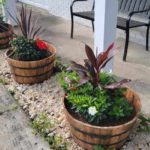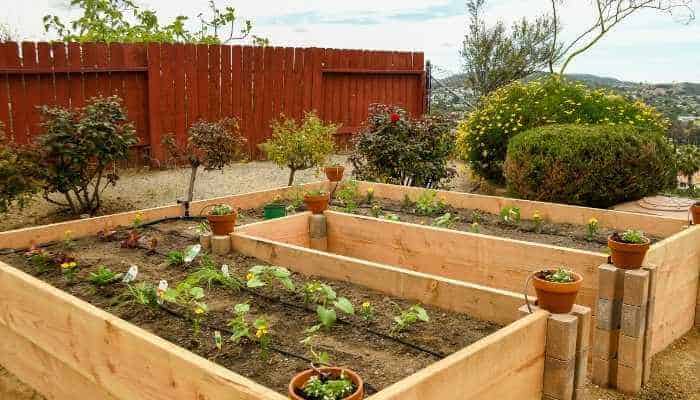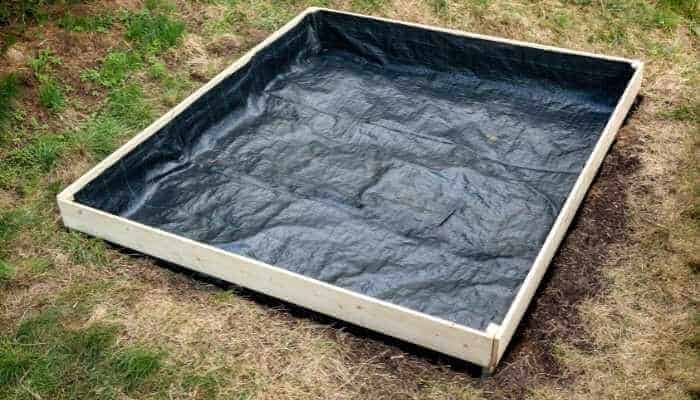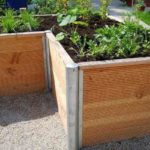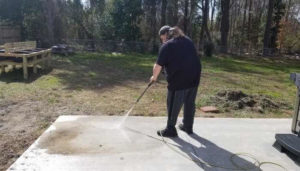Accessible gardening is a great way to be self-sufficient even if your mobility is hindered due to age or some other event. With it, you are able to get some much-needed sunlight, exercise, and fresh vegetables.
Raised bed gardening is an excellent pastime for seniors and people who have mobility issues because it brings the garden closer to them so that they can gain all of the benefits of gardening without most of the safety issues inherent in standard gardening.
Gardening is a good method of getting people out and about and giving them something productive to do that is also healthy for them. When it comes to seniors this is very important. And people with mobility issues can also benefit from raised bed gardening because they can more easily reach and work in these beds.
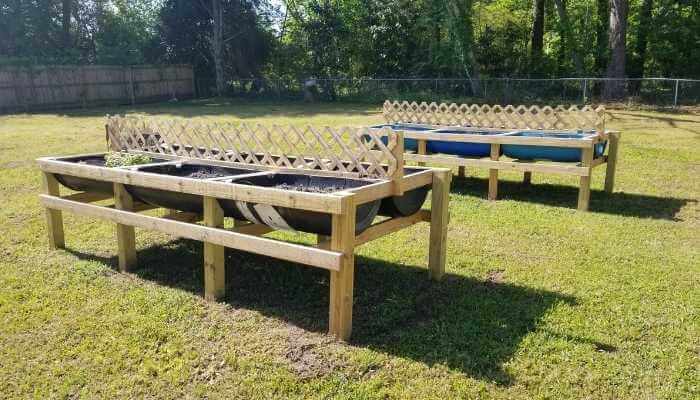
How Raised Bed Gardening Can Help Seniors (…As Well as Other People!)
First of all, let’s look at how gardening, in general, can help seniors enjoy a fulfilling lifestyle. Gardening in general lowers stress and anxiety in any human being. Gardening decreases your cortisol levels, which can alleviate stress and high blood pressure. It also increases serotonin – a chemical known to improve calmness. So basically, it helps with depression.
Studies have shown that gardening actually increases your vitamin D levels because you generally do it with a bit of sunlight around. Gardening is an exercise in lightweight problem solving and as such it helps reduce many forms of dementia.
Gardening is also a positive lifestyle choice for almost anyone, but especially seniors, and can help decrease episodes of sundowning that seniors experience. Not only do all of the things above apply to this, but also, seniors who get to go out and garden will have expended a lot of energy doing so and therefore will often have a more restful evening afterward.
Gardening in raised beds is simply safer than in the standard gardens. There is less bending, so fewer falls, and you’re less likely to need to be on your hands and knees, which is an overall win no matter your age!
Keep in mind, this is definitely not one-size-fits-all (who came up with this terminology, anyway?) But, if you’ve made the raised beds the right height, which is around 24 – 30 inches tall, there is less bending and reaching to deal with. People on crutches, canes, or wheelchairs will especially benefit from raised bed gardening because of this.
How to Ensure Raised Bed Gardening Is a Fit for People with Mobility Issues
Not only do most of the things I mentioned above as help that gardening provides to seniors also work for everyone else, but when it comes to people with mobility issues, there are more things to cover.
People with mobility challenges often get left out of the fun and experience of gardening or have a heck of a more difficult time with it. They could benefit from the good things that come with gardening too, and deserve to be able to do so. Raised bed gardens are a great fit for people with mobility issues because there is less bending and therefore fewer falls.
This is especially important because gardening actually provides a sneaky form of exercise and physical strength building. Engaging in dexterity exercises and the hand-eye coordination provided by weeding, hand-tilling, and harvesting in the garden is helpful to the therapy needed for many people recovering from stroke or who have other muscle issues.
Some reach is good, so long as it’s safe, but designing your garden upward so that the crop is hanging from accessible areas rather than on the ground to get in the way is necessary. Vertical gardening is a stellar idea. Trellises for vines and upward growing crops help.
Making sure your raised bed gardens are the practical height for people in wheelchairs to get to is optimal. As I stated before, if the top of the bed is around 24 – 30 inches from the ground, there is less of a reach issue.
Making sure your raised beds aren’t overly wide is also very helpful. We actually invested in beds that are made of half-barrels on legs this season to help with my husband’s back issues. They aren’t overly wide, so it’s easy to reach the back of the plots and they are the perfect height so that there isn’t a lot of bending.
Also, be mindful of the space between beds so that people on wheelchairs and crutches can manage the area safely. Believe it or not, grab bars can be mounted on the sides of sturdy raised beds and can be very helpful for people who can stand up to garden out of their chairs.
Other Tips for Gardening with Seniors and People with Mobility Issues
The idea is to make the work easier and keep your friends and family productive in the raised bed garden. To that end, traditional garden tools should be replaced by lightweight or hand-held gardening tools. Buckets and baskets can be used for gathering.
There are adaptive tools available at many hardware stores and coops. You can also modify tools with tape, foam, or tubing to help people with good grip despite any mobility issues.
Make sure the garden is secure and safe for those who may have dementia or other mental health issues. Be aware that bumps and bruises can be a problem with seniors who have thinner skin and take blood thinners regularly.
Always be aware of keeping your skin covered and protected from the sun’s UV light. Maybe set a time frame that’s best for taking care of the garden around sundown so that there isn’t as much sunlight to be bothered with.
Having seating available for rest between working in the planters is also an excellent idea. Even younger adults can benefit from having a seat now and again. For instance, my husband has suffered a back injury and has to sit down now and again to keep his back from spasming.
Grow your plants in the wide row method. This places plants closer together, but they crowd out weeds and shade the soil – prolonging the time between watering and the soil drying out. It happens so much so, that I would suggest drip watering systems so that no one has to wrestle with the hose on a daily basis.
In Conclusion
Gardening and specifically raised bed gardening can be for everyone, including seniors and people who have mobility challenges. It’s not only healthy, it makes people happy.
